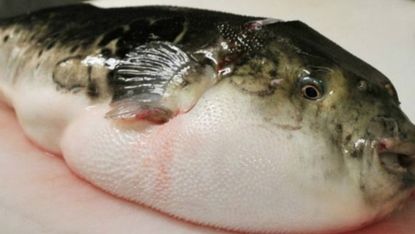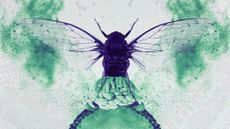Japanese hunt for deadly blowfish sold in supermarket error
Three out of the five pieces of fugu have been accounted for after warnings broadcast across the city of Gamagori

A Japanese city has broadcast emergency warnings to prevent people consuming blowfish, after potentially deadly portions were mistakenly sold.
Officials in Gamagori activated the town’s emergency loudspeakers - “intended for use in case of North Korean missile attack,” notes The Times - to warn the population about the mistake, and to appeal for the recall of the fugu.
Three of the potentially lethal specimens have been located, but the other two remain at large, local official Koji Takayanagi said.
Subscribe to The Week
Escape your echo chamber. Get the facts behind the news, plus analysis from multiple perspectives.

Sign up for The Week's Free Newsletters
From our morning news briefing to a weekly Good News Newsletter, get the best of The Week delivered directly to your inbox.
From our morning news briefing to a weekly Good News Newsletter, get the best of The Week delivered directly to your inbox.
“We are calling for residents to avoid eating fugu, using Gamagori city’s emergency wireless system,” he said.
“Three packages will be retrieved today but we still don’t know where the remaining two are.”
Fugu “is one of Japan’s most expensive winter delicacies, and is often served in thin slices of sashimi or hot pot,” reports The Guardian.
Japanese chefs are required to obtain a special permit to prepare the fish as “the fish’s skin, intestine, ovaries and liver contain a poison called tetrodotoxin that can be fatal,” adds the paper.
There is no antidote to the poison.
“Fugu lovers say that the presence of a small amount of poison, and the tingling sensation which it produces in the lips and gums, enhances the pleasure of eating the fish,” says The Times.
But other less enjoyable side-effects include salivation, sweating, headache, vomiting, diarrhoea and coma.
Since 2000, there have been 26 deaths from incorrectly prepared puffers, most of them at home rather than in restaurants.
Create an account with the same email registered to your subscription to unlock access.
Sign up for Today's Best Articles in your inbox
A free daily email with the biggest news stories of the day – and the best features from TheWeek.com
-
 Cicada-geddon: the fungus that controls insects like 'zombies'
Cicada-geddon: the fungus that controls insects like 'zombies'Under The Radar Expert says bugs will develop 'hypersexualisation' despite their genitals falling off
By Chas Newkey-Burden, The Week UK Published
-
 'Voters know Biden and Trump all too well'
'Voters know Biden and Trump all too well'Instant Opinion Opinion, comment and editorials of the day
By Harold Maass, The Week US Published
-
 Is the Gaza war tearing US university campuses apart?
Is the Gaza war tearing US university campuses apart?Today's Big Question Protests at Columbia University, other institutions, pit free speech against student safety
By Joel Mathis, The Week US Published
-
 Puffed rice and yoga: inside the collapsed tunnel where Indian workers await rescue
Puffed rice and yoga: inside the collapsed tunnel where Indian workers await rescueSpeed Read Workers trapped in collapsed tunnel are suffering from dysentery and anxiety over their rescue
By Sorcha Bradley, The Week UK Published
-
 Gaza hospital blast: What the video evidence shows about who's to blame
Gaza hospital blast: What the video evidence shows about who's to blameSpeed Read Nobody wants to take responsibility for the deadly explosion in the courtyard of Gaza's al-Ahli Hospital. Roll the tape.
By Peter Weber, The Week US Published
-
 Giraffe poo seized after woman wanted to use it to make a necklace
Giraffe poo seized after woman wanted to use it to make a necklaceTall Tales And other stories from the stranger side of life
By Chas Newkey-Burden, The Week UK Published
-
 Helicopter sound arouses crocodiles
Helicopter sound arouses crocodilesTall Tales And other stories from the stranger side of life
By Chas Newkey-Burden, The Week UK Published
-
 Woman sues Disney over 'injurious wedgie'
Woman sues Disney over 'injurious wedgie'Tall Tales And other stories from the stranger side of life
By Chas Newkey-Burden, The Week UK Published
-
 Emotional support alligator turned away from baseball stadium
Emotional support alligator turned away from baseball stadiumTall Tales And other stories from the stranger side of life
By Chas Newkey-Burden, The Week UK Published
-
 Europe's oldest shoes found in Spanish caves
Europe's oldest shoes found in Spanish cavesTall Tales And other stories from the stranger side of life
By Chas Newkey-Burden, The Week UK Published
-
 Artworks stolen by Nazis returned to heirs of cabaret performer
Artworks stolen by Nazis returned to heirs of cabaret performerIt wasn't all bad Good news stories from the past seven days
By The Week Staff Published